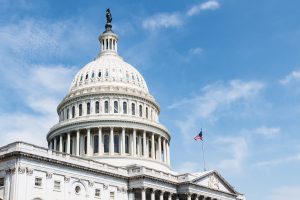 (March 5, 2026 – WASHINGTON, D.C.) After a two-day markup held by the U.S. House Agriculture Committee, H.R. 7567, the Farm, Food, and National Security Act of 2026 was officially passed by the Committee early this morning by a 34-17 vote. The bill was supported by Republican members of the Committee, along with seven Democrat members. Democrats who joined the Republicans in voting to pass the bill were Reps. Jim Costa (CA), Sharice Davids (KS), Don Davis (NC), Gabe Vasquez (NM), Adam Gray (CA), Kristen McDonald Rivet (MI), and Josh Riley (NY).
(March 5, 2026 – WASHINGTON, D.C.) After a two-day markup held by the U.S. House Agriculture Committee, H.R. 7567, the Farm, Food, and National Security Act of 2026 was officially passed by the Committee early this morning by a 34-17 vote. The bill was supported by Republican members of the Committee, along with seven Democrat members. Democrats who joined the Republicans in voting to pass the bill were Reps. Jim Costa (CA), Sharice Davids (KS), Don Davis (NC), Gabe Vasquez (NM), Adam Gray (CA), Kristen McDonald Rivet (MI), and Josh Riley (NY).
The Farm, Food, and National Security Act of 2026, or commonly referred to as “Farm Bill 2.0,” builds upon the traditional Farm Bill provisions included in last year’s final passage of H.R. 1, the One Big Beautiful Bill Act (OBBBA) in 2025.
Specifically, this legislation strengthens the operation of the Marketing Assistance Loan (MAL) program by clarifying program authority and ensuring that the program remains fully operational during any future lapses in federal government funding. These updates reinforce the farm safety net and provide greater certainty for producers and market participants who rely on the MAL program for financial stability and market flexibility. The legislation also underscores continued support for agricultural export markets, which remain a top priority for the U.S. peanut industry.
In addition, the bill includes important provisions related to international and emergency food assistance programs—longstanding markets for U.S. peanut products. The allocation of $200 million annually to support emergency food assistance programs for the procurement and distribution of ready-to-use therapeutic foods will provide meaningful benefits to the entire U.S. peanut industry. Furthermore, transferring the authorities of the Food for Peace Act from the U.S. Agency for International Development to the U.S. Department of Agriculture will expand opportunities for program participation. The bill also reserves 50 percent of Food for Peace resources for U.S.-grown commodities, which will help ensure continued utilization of peanut products in these programs.
USPF recently joined the American Soybean Association, National Milk Producers Federation, and U.S. Dairy Export Council in sending a letter to U.S. House Agriculture Committee Chairman GT Thompson and Ranking Member Angie Craig, supporting the inclusion of funding for Ready-to-Use Therapeutic Foods (RUTF) in the bill text. U.S. House Agriculture Committee Vice Chair Rep. Austin Scott (R-GA-08) included this support in his opening remarks during the markup.
“The U.S. Peanut Federation appreciates the hard work of the U.S. House Agriculture Committee in completing the Farm Bill and passing it out of committee,” stated USPF Chairman Jamie Brown. “The assurance of operations to the Marketing Assistance Loan program are significant for improving the process for all peanut industry participants. Additionally, new investments in food assistance programs will benefit the entire U.S. peanut industry. USPF thanks Charmain GT Thompson for his leadership and applauds the Members of Congress who supported farm communities by voting to advance this important legislation.”
###
The United States Peanut Federation (USPF) is comprised of the Southern Peanut Farmers Federation, the American Peanut Shellers Association, and the National Peanut Buying Points Association. USPF serves as a unified voice in Washington D.C. for all sectors of the peanut industry and advocates actively for strong agricultural policy. For additional information, contact Lorene Parker at (202) 543-7464 or by emailing lparker@reddingfirm.com.

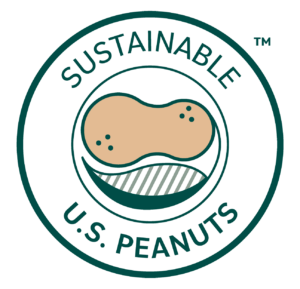 The American Peanut Council is currently taking grower enrollments for the Sustainable U.S. Peanuts’ (SUSP) 2025 crop. Growers can enroll now through April 2026 at
The American Peanut Council is currently taking grower enrollments for the Sustainable U.S. Peanuts’ (SUSP) 2025 crop. Growers can enroll now through April 2026 at 

 Some pieces of equipment on the farm are more than iron and paint. They carry memories, seasons and the lessons learned between daylight and dark. The tractor I’m thinking about is my dad’s 1953 Farmall Super A. It’s the one I raked hay with during my high school years. Back then, I never thought about the age of the tractor or what it meant to my dad. It was simply the tractor that I was given to drive.
Some pieces of equipment on the farm are more than iron and paint. They carry memories, seasons and the lessons learned between daylight and dark. The tractor I’m thinking about is my dad’s 1953 Farmall Super A. It’s the one I raked hay with during my high school years. Back then, I never thought about the age of the tractor or what it meant to my dad. It was simply the tractor that I was given to drive.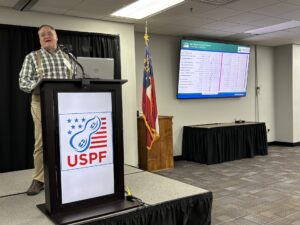
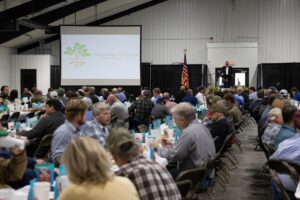 (Jan. 20, 2026) The Annual Alabama–Florida Peanut Trade Show will be held Thursday, January 29, 2026, at the National Peanut Festival Fairgrounds in Dothan.
(Jan. 20, 2026) The Annual Alabama–Florida Peanut Trade Show will be held Thursday, January 29, 2026, at the National Peanut Festival Fairgrounds in Dothan. (Jan. 6, 2026) Producers can improve the bottom-line of their farming operation with knowledge, connections and information gained at the 49th annual Georgia Peanut Farm Show and Conference, held at the University of Georgia Tifton Campus Conference Center, Jan. 15, 2026. The show hours will be 8:00 a.m. – 2:30 p.m. Peanut farmers and those involved in the peanut industry will be able to learn more about the latest products, services and peanut research at the show, which is sponsored by the Georgia Peanut Commission.
(Jan. 6, 2026) Producers can improve the bottom-line of their farming operation with knowledge, connections and information gained at the 49th annual Georgia Peanut Farm Show and Conference, held at the University of Georgia Tifton Campus Conference Center, Jan. 15, 2026. The show hours will be 8:00 a.m. – 2:30 p.m. Peanut farmers and those involved in the peanut industry will be able to learn more about the latest products, services and peanut research at the show, which is sponsored by the Georgia Peanut Commission.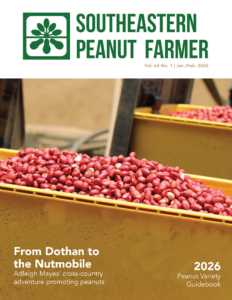 This issue features:
This issue features: